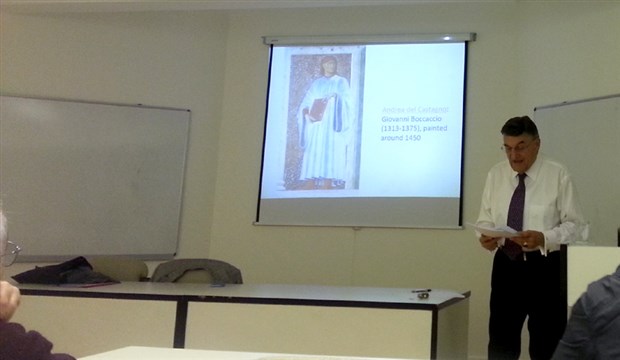On Monday, October 20, Dr. Gerhard Strasser, professor emeritus of German and comparative literature at Penn State University, gave a talk on “The Plague in Historiography and World Literature” at Bilkent. The lecture was organized by the Center for Turkish Literature, and attracted many scholars and students from various history and language departments in Ankara.
Prof. Strasser started his talk with mention of AIDS and Ebola as epidemics that currently pose a serious threat to world health. He then went on to discuss the impact on world culture of the bubonic plague, a disease that shadowed humankind for two thousand years until the microbe that caused it was identified in 1894.
Prof. Strasser referred to the many historical and literary texts as well as images that accumulated from ancient times to the twentieth century. He noted that that the first texts on the plague were from Ancient Greek literature, with later works appearing in the Middle Ages and up to modern times. He also presented examples of how Muslim and Christian writers reflected on the physical, social and psychological calamities caused by the plague.
Prof. Strasser concluded his talk with a commentary on two contemporary works of literature that have made use of the plague for literary purposes. One of these works, “La Peste,” written by the French existentialist Albert Camus, used the plague as an allegory for Nazi Germany’s invasion of Paris. The other work, “The White Castle,” by Nobel Prize-winning Turkish author Orhan Pamuk, utilized the plague that broke out in seventeenth-century Istanbul as its central theme to elaborate on the issue of the “other self.”

